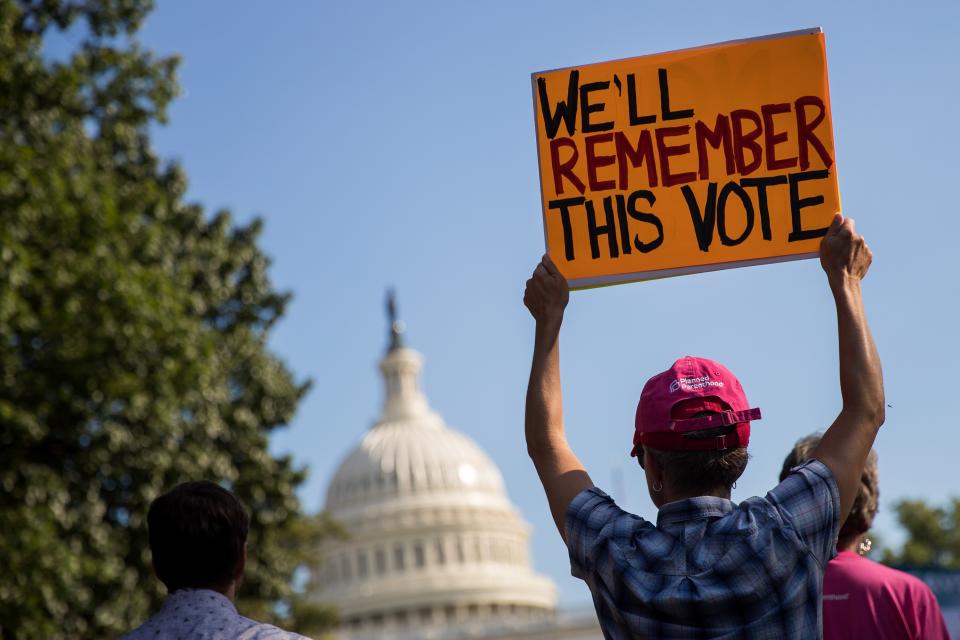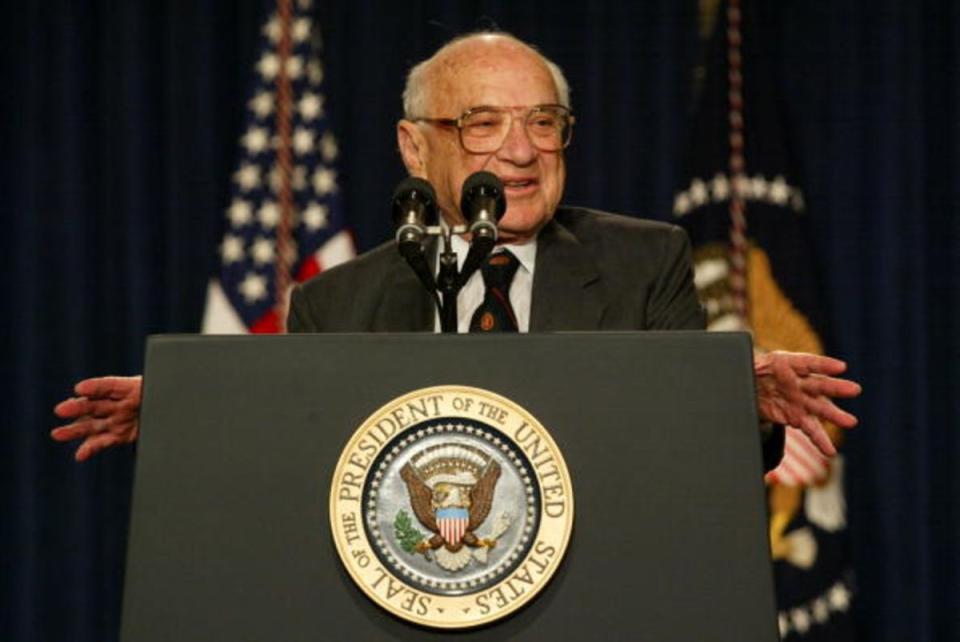Trump’s unwitting legacy could be universal health coverage
After Congressional Republicans fail to repeal the Affordable Care Act, then what?
They could continue trying to hack away at Obamacare, as the ACA is known. Or they could acknowledge the obvious: it’s time to find a way to extend coverage to every American, otherwise known as universal health care.
The presumption among conservatives is that universal health care is the same as socialized medicine provided exclusively by the government. This is sloppy use of language. Universal care simply means everybody has it. Coverage can come from the public or private sector, or a mix of both. Since the United States already has robust health systems in both the public and private sector, a hybrid system built on the best of both would probably work best. It would be partly socialized and partly free-market, as it is now.

But it would work better. The grueling and at times farcical effort to kill Obamacare has revealed the single-biggest problem in the US health care system: there’s no safety net for people who, for whatever reason, can’t afford insurance. There were nearly 50 million uninsured Americans before Obamacare went into effect in 2014, and there are still around 27 million. The GOP couldn’t kill Obamacare largely because it would leave more people uninsured. Governors objected to that (including some Republicans), as did hospitals, doctors, the AARP and a strong majority of voters.
How the free market could lower health costs
There’s an obvious consensus that the more people with health coverage, the better. So why not go all the way, and cover everybody? Even President Donald Trump has said “insurance for everybody” is his goal.
Insurance for everybody evokes Bernie Sanders’ “Medicare for all” plan, which would basically be the socialized, government-provided universal coverage conservatives dread. But there are other ways to provide universal coverage. Way back in 2001, famed conservative economist Milton Friedman made the case for “providing every family in the United States with catastrophic insurance” that would alleviate fears of going broke on account of a medical emergency. Friedman’s plan included other big changes such as eliminating Medicare and Medicaid, ending the tax exemption of employer-provided health insurance and establishing medical savings accounts—similar to HSAs today—that would help everybody pay for routine medical costs. Politically impossible? Maybe. But there are certainly ways to rely more on free-market mechanisms to lower costs, making insurance more affordable for everybody.

Obamacare was meant to extend the medical safety net to more people, just as Romneycare—the plan put in place by Republican Mitt Romney when he was governor of Massachusetts—was supposed to. The ACA has some notable glitches, however. The individual mandate requiring everybody to buy insurance is unpopular, fueling efforts to repeal the law, as misguided as those efforts are. An unintended consequence of the ACA is the “middle-class cliff” for people who don’t have employer-provided insurance but make too much money to qualify for Medicaid or ACA subsidies. Many such people—typically between 50 and 64—have seen premiums and deductibles soar, because they suddenly belong to an out-of-whack risk pool including too many older people like themselves.
The simple-minded approach to these problems has been to repeal the law that created them. But that would also undo the good that came from the ACA—such as extending coverage to an additional 20 million people—which is why repeal efforts failed. A better approach would be fixing existing problems without making anybody worse off. That’s what universal coverage would accomplish.
It would cost more—up front. But a system that provided every American basic catastrophic coverage, at taxpayer expense, could then rely on free-market dynamics to foster competition among private-sector provides, eliminate middlemen and drive down costs. One reason the ACA is so convoluted is that it didn’t provide single-payer universal coverage, which was politically unpalatable at the time. Instead, it created an elaborate carrot-and-stick system meant to mimic free-market dynamics, like some kind of capitalistic parallel universe. As we’re now discovering, that left it vulnerable to sabotage if the government decided to withdraw any single carrot or stick. Real markets aren’t that fragile.
An alternative to employer-provided coverage
As an alternative to employer-provided coverage—which Friedman called “thoroughly illogical”—the Nobel Prize-winning economist favored subsidies granted to all Americans based on income, which would phase out at a certain level. Consumers would use that money to pay for their own out-of-pocket medical costs, until insurance kicked in. They’d have a powerful incentive to shop for the best deals and therefore save money. Providers would have to offer good value to get and retain customers. In this way, Friedman hoped private-sector efficiencies would help lower costs to levels more in line with those in other developed countries, which even in 2001 paid less for medical care per person, with better results.
House Speaker Paul Ryan favors such a plan, which Democrats generally dislike because they feel the elderly and the poor would get a raw deal, compared with the Medicare and Medicaid benefits they get now. But that depends entirely on the level of subsidies offered by Washington, which could be raised later if set too low or shown to be ineffective. Such a plan could also be phased in slowly, with current beneficiaries of Medicare and Medicaid keeping their benefits and only new entrants moving onto the new system.
None of this is likely to happen any time soon. But the end of Republican efforts to kill Obamacare will mark a pivot point allowing everybody along the political spectrum to move on. And eventually, ever-soaring health care costs will swamp federal budgets and force Congress to act. Taking care away from people hasn’t worked, so legislators may as well try to go the distance and extend it to everybody.
Confidential tip line: [email protected]. Encrypted communication available.
Read more:
Obamacare is hurting these people–and Congress is doing nothing about it
Meet the Trump regretters, who wish they could change their vote
Rick Newman is the author of four books, including Rebounders: How Winners Pivot from Setback to Success. Follow him on Twitter: @rickjnewman
